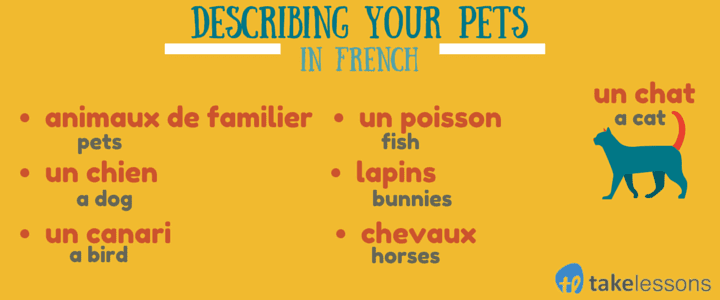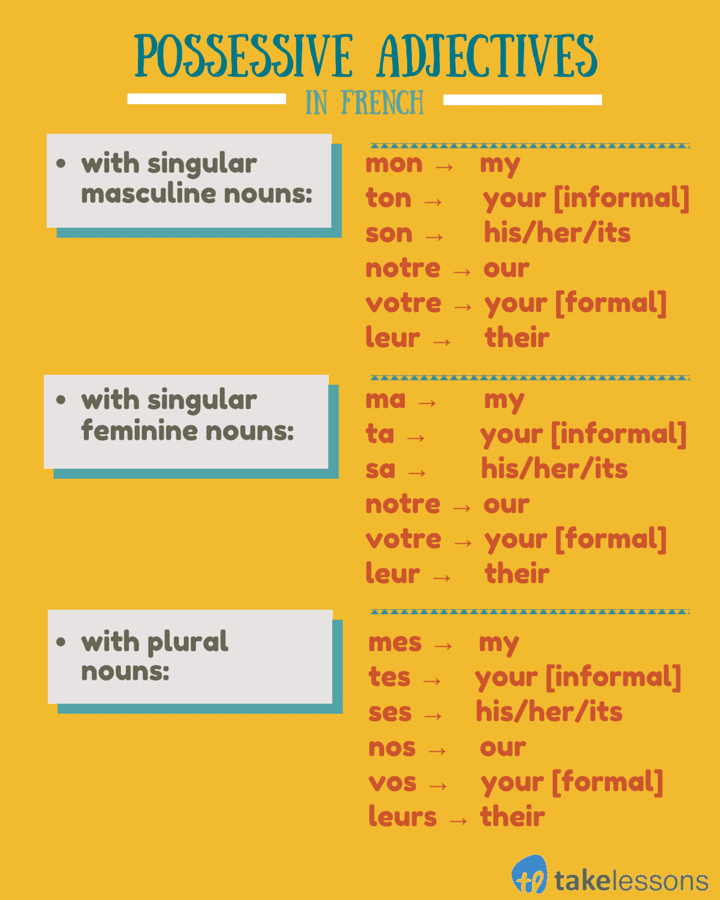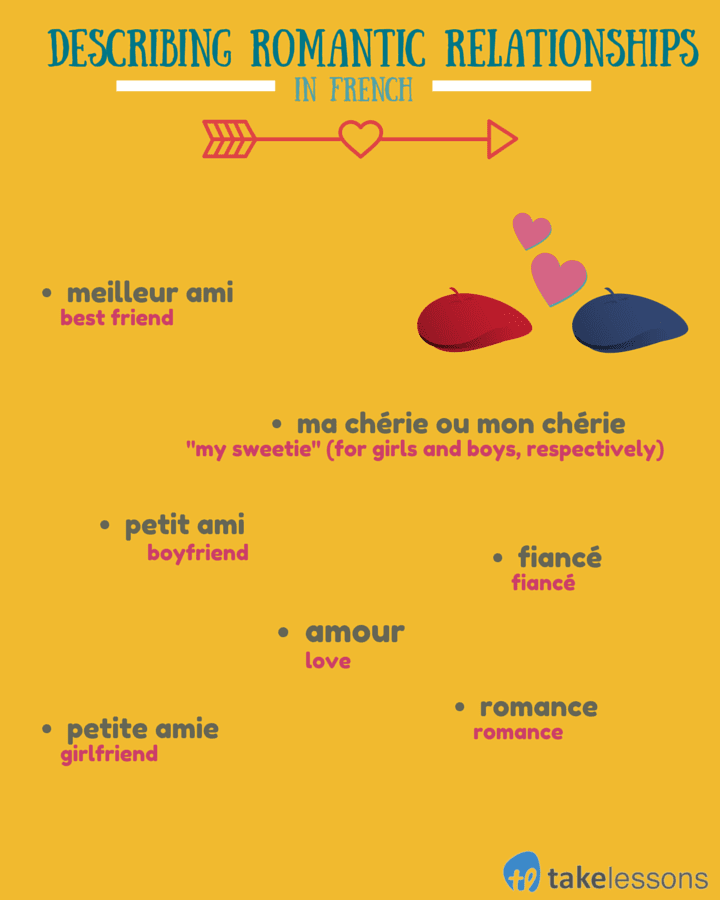Learn how to talk about the most important people in your life in this French vocabulary lesson from tutor Emmanuel N.…
French Vocabulary Words to Describe Your Family
Bonjour, mes amis (Hello, my friends)! Let’s talk about our familles et amis (families and friends). If a man decides to marry a woman, she is sa femme (his wife), and he is son mari (her husband). Next, they might decide to settle down and start their own family. Most families have une mère et un père (a mother and a father) with maybe one or more enfants (children).
If you’re an only child, then you don’t have any siblings. But, if you’re not, you will have un frère ou une sœur (a brother or a sister) – or even both. If your parents have only boys, then they have fils (sons), if they have only girls then they have filles (daughters).
Tes parents (your parents) have you and your siblings – which are all leurs enfants (their children). Your parents might have their own siblings, brothers and/or sisters, which, to you, would be ton oncle et ta tante (your uncle and your aunt). Their children would be tes cousins (your cousins). However, none of these family members would exist without your dear old grand-père et grand-mère (grandfather and grandmother).
Now, some families have one or more animaux de familier (pets), while some don’t have any. Some people have un chien (a dog), some have un chat (a cat), and others might have un canari ou un poisson (a bird or a fish). Some people have cute little lapins (bunnies), and others have majestic strong chevaux (horses).
French Possessive Adjectives
In French, it’s important to know the proper way of using possessive adjectives to modify French nouns. For example, when talking about your pets, your friends’ pets, or anyone else’s pets. All possessive adjectives come before the noun, whether it’s a singular masculine, feminine, or plural French noun.
When referring to singular masculine nouns, we use:
mon → my
ton → your [informal]
son → his/her/its
notre → our
votre → your [formal]
leur → their
When referring to singular feminine nouns, we use:
ma → my
ta → your [informal]
sa → his/her/its
notre → our
votre → your [formal]
leur → their
Lastly, when referring to plural nouns, we use:
mes → my
tes → your [informal]
ses → his/her/its
nos → our
vos → your [formal]
leurs → their
Example Sentences
To help you better grasp that concept, here are several examples and their translations:
- C’est mon chien. – It’s my dog.
- Elle est la sœur d’Alexandre. – She is Alexander’s sister.
- Non, Marc n’est pas leur père, il est leur oncle. – No, Marc isn’t their father, he is their uncle.
- Ils sont sympas, tes frères? – Are your brothers nice?
- Je te présente mon ami, Oscar. – I present to you my friend, Oscar.
- Ma demi-sœur s’appelle Sheenna et mon demi-frère s’appelle Nikki. – My half-sister is named Sheenna, and my half-brother is named Nikki.
Describing Romantic Relationships
Lastly, let’s discuss relationships of love using some common French vocabulary words. Sometimes you have a friend with whom you share a strong connection. Soon, he/she becomes your meilleur ami (best friend), as you spend lots of time together and get to know each other. After a while, you may ask him or her to be your petit ami (boyfriend) or your petite amie (girlfriend).
You both come up with nicknames for each other, like ma chérie ou mon chérie (“my sweetie” for girls and boys, respectively). After a few years of amour (love) and romance (romance), you may ask him or her to be your fiancé (fiancé). Then, you both might get married and may even start a family of your own.
Learning French is fun when you come up with a story using the new French vocabulary words that you have learned. Try creating a story about your family and friends – how old they are, what they like to do, and what you all like to do together.
A tout a l’heure, mes étudiants!

Post Author: Emmanuel N.
Emmanuel N. teaches online Spanish and singing lessons. He earned his B.A. in psychology from California State University, Fullerton and has been teaching lessons since January 2015. Learn more about Emmanuel here!
Photo by amira_a
The post Build Your French Vocabulary: Family Members and Relationships appeared first on | TakeLessons.





